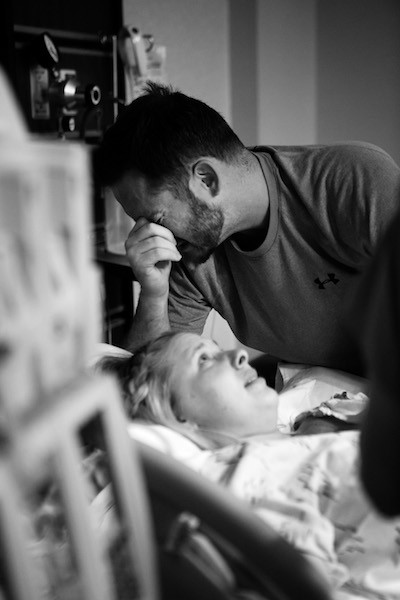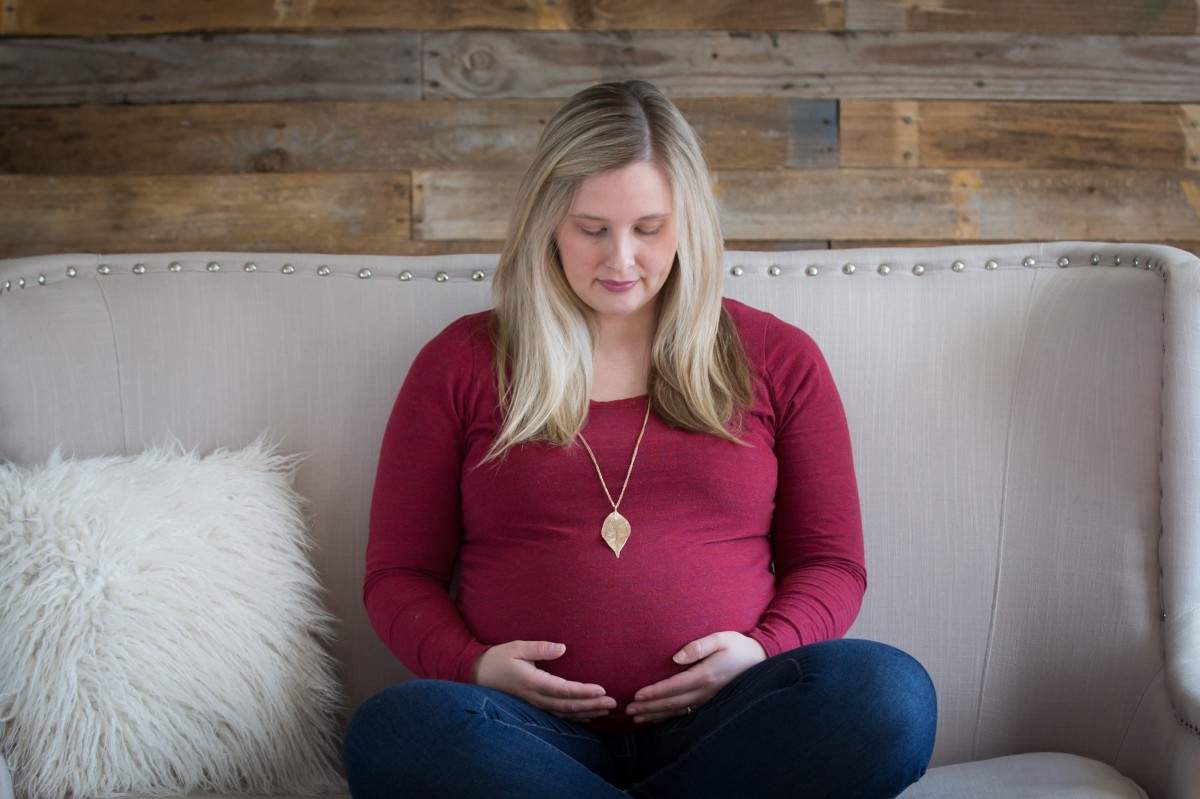Keri and Royce Young spent months bracing themselves for the death of their daughter, but nothing could prepare them for the actual day.

In February, the Oklahoma City couple decided to carry their baby without a brain to term, to eventually donate her organs. Months prior, the couple was told their unborn daughter was diagnosed with a rare birth defect called anencephaly.
“In our minds, we were intentionally taking on the loss of a child, rather than the loss of a pregnancy. And yes, there is a difference,” father Royce Young wrote in recent a Medium post about his family’s decision.
READ MORE: Mother explains need for organ donations
“We decided to continue, and chose the name Eva for our girl, which means ‘giver of life.’ The mission was simple: Get Eva to full term, welcome her into this world to die, and let her give the gift of life to some other hurting family.”
But that’s not how this story played out. On April 16, Eva was a stillborn and her major organs were no longer suitable for donor recipients.
Last week, Keri posted a photo of her family on Facebook, posing with Eva and her son.
“We said hello and goodbye to our sweet Eva yesterday. She was so perfect in her own little way,” Keri wrote on the social media site.
An uneasy road to labour
Young said the kicks and punches in his wife’s womb was a constant reminder of their baby girl.
And like any other expecting couple, the family took in all the joys of pregnancy.
The looked forward to holding and kissing Eva, had ultrasounds to see her grow and even made plans for their son to meet his sister.

Get weekly health news
READ MORE: Woman records heartbeat, puts in teddy bear to thank family for organ donation
“The time we’d have was completely unknown, with it ranging anywhere from five seconds to five minutes to five hours, to in some more optimistic estimates, five days,” he wrote.
Dark and painful birth
Before Keri was induced into labour, doctors couldn’t detect Eva’s heart.
“Eva was gone before we ever got to meet her. The brain controls steady heart functions, and Eva’s finally gave out,” Young wrote.

“We had tried to do everything right, tried to think of others, tried to take every possible step to make this work, and it didn’t. We felt cheated.”
Newborn organ donation
Donating Eva’s organs was a first for the hospital as well. Young said a “big meeting” of 30-something people got together to weigh in on his daughter’s outcomes.
And although the infant’s major organs weren’t suitable for donation, something unexpected happened: doctors told the couple they found a recipient for Eva’s eyes.
“She’s the first ever — not baby, but person — in the state of Oklahoma to donate a whole eye, and she donated two,” Young wrote.
READ MORE: Saskatchewan premier eyes presumed consent to boost organ donation
“In some ways, though, I’m more excited about her eyes being her living legacy. I keep thinking about looking into them some day, but more than anything, about her eyes seeing her mom, dad and brother.”
In 2015, Kevin and Cheryl Boston donated their 21-month-old son’s kidney, liver and heart to three different donor recipients, something they called a “silver lining.”
“It does help through the grieving process. Almost every day you cry because you miss him, but you know he’s got a little girlfriend out there with his heart. That’s his girlfriend forever now,” Kevin told Global News in 2015.
And while doctors add organ and tissue donation is a “touchy subject,” dealing with infants is another layer of complexity.
Children’s organs are typically earmarked for youth, but if there isn’t a compatible match, a child’s organ can be used in a fully grown adult. For example, two child-sized kidneys can be put together for an adult.
Family receives support of strangers
Since the Young family’s story went viral, hundreds of strangers online have sent messages of love and support. On Facebook, several users shared how touched they were with the family’s act of donating organs.
“Not only is Eva a blessing but so are you and your entire family. This is an act of pure love. Thank you for being an inspiration and sharing your story. I shed a few tears, but not out of sadness,” user Melissa Caro wrote.
READ MORE: Cancer gene still alive in body after death; could be transplanted through organ donation: study
Many even shared their similar stories.
— With files from Carmen Chai











Comments
Want to discuss? Please read our Commenting Policy first.